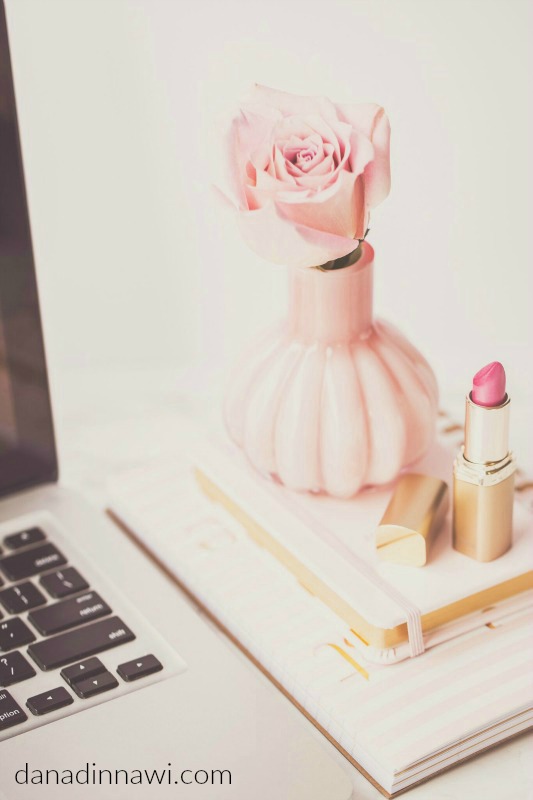Your skin is your largest organ. Whenever you apply any products to your skin, whether to your face, body or hair, the ingredients in that product are absorbed into your bloodstream within 26 SECONDS. That’s faster than if you were to eat and digest the product. And since these products aren’t recognizable to the body, the body can’t break them down and eliminate them, so over time, you have a buildup of toxicity. It is estimated that the average woman uses 168 chemicals on her body daily, between face creams, body lotions, deodorants, makeup and shampoo and conditioner.
 So it’s important that you know what your products are made of and how these ingredients may impact your health and cancer in particular. But the main obstacle to this is that the cosmetic industry is not under any true regulation to provide accurate information to their consumers. And “the law also does not require cosmetic companies to share their safety information with the Food and Drug Association (FDA).” So, while cosmetics companies are responsible for substantiating the safety of their own cosmetics, there are no required tests to do so and they don’t have to share safety data about their products… the FDA isn’t even authorized to order recalls of hazardous chemicals from the market.” mercola.com
So it’s important that you know what your products are made of and how these ingredients may impact your health and cancer in particular. But the main obstacle to this is that the cosmetic industry is not under any true regulation to provide accurate information to their consumers. And “the law also does not require cosmetic companies to share their safety information with the Food and Drug Association (FDA).” So, while cosmetics companies are responsible for substantiating the safety of their own cosmetics, there are no required tests to do so and they don’t have to share safety data about their products… the FDA isn’t even authorized to order recalls of hazardous chemicals from the market.” mercola.com
These are just some of the most hazardous chemicals found in many personal care products and cosmetics:
- Paraben, a chemical found in deodorants, hair products, and cosmetics, foaming cleanser, body mist, lipstick, body cream, facial cream, body and shower gel, skin cream, hand lotion, moisturizers, and lip gloss, that has been shown to mimic the action of the female hormone estrogen, which can drive the growth of human breast tumors. A study published in 2012 suggested that parabens from antiperspirants and other cosmetics indeed appear to increase your risk of breast cancer. The research looked at where breast tumors were appearing and determined that higher concentrations of parabens were found in the upper quadrants of the breast and axillary area, where antiperspirants are usually applied.
- Sodium lauryl sulfate, a surfactant, detergent, and emulsifier used in thousands of cosmetic products, as well as in industrial cleaners. It’s present in nearly all shampoos, scalp treatments, hair color and bleaching agents, toothpastes, body washes and cleansers, make-up foundations, liquid hand soaps, laundry detergents, and bath oils/bath salts. The real problem with SLES/SLS is that the manufacturing process (ethoxylation) results in SLES/SLS being contaminated with 1,4 dioxane, a carcinogenic by-product.
- Phthalates are plasticizing ingredients that have been linked to birth defects in the reproductive system of boys and lower sperm-motility in adult men, among other problems. Be aware that phthalates are often hidden on shampoo labels under the generic term “fragrance.”
- Methylisothiazolinone (MIT), a chemical used in shampoo to prevent bacteria from developing, which may have detrimental effects on your nervous system.
- Toluene, made from petroleum or coal tar, and found in most synthetic fragrances and nail polish. Chronic exposure linked to anemia, lowered blood cell count, liver or kidney damage, and may affect a developing fetus.
- Fragrances, the catch-all category that can consist of any of over 2,000 different chemicals, including carcinogens and other toxins.
- Perfumes, contain proprietary fragrances and other alcohols that are reported to cause breast cells to produce estrogen in excessive amounts.
So what can you use instead? As women, our beauty routines are quite important to us, not only in the benefits we see but also in the ritual of taking daily time, even for a few minutes, to do something to take care of ourselves after a long and hectic day of taking care of everyone else. So any potential change to this routine can be difficult.
However, I’m not saying to remove the ritual, simply replace the products. Fortunately in Egypt, we now have a wide selection of all-natural products available to us.
These 2 companies are ones I personally use. They have an excellent range of facial creams; body creams and soaps; deodorants; shampoos and conditioners and Eden Greens has an especially potent Wonder Hair Oil that I recommend to everyone.
I also use these products that you can order if you live or travel abroad. They do ship to Egypt, but the duty on them is simply too expensive given that we have our own excellent local alternatives. http://www.livinglibations.com
Take some time to go through your products and read the labels very carefully. A simple rule of thumb is, “if you can’t eat it, don’t put it on your skin!” And when you purchase natural alternatives, the names of the ingredients should be recognizable to you–such as coconut oil, jojoba oil, lavendar oil, etc.
The transition doesn’t have to be an all-or-nothing approach. Choose one product that you can switch out and once you’re comfortable with that, choose the next one, and so on. You might find that your skin and/or hair goes through a “healing crisis” where it gets worse before it adjusts to the new product and gets better. That’s normal.
Be patient and you will find that living with these new products is not as hard as you initially thought!
